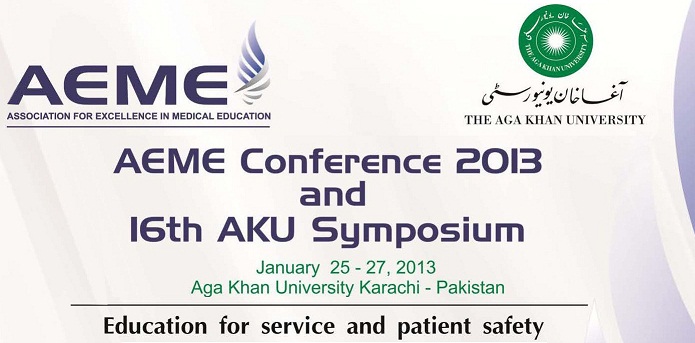Day 1 : Poster Presentations (Theme: Teaching and Learning)
Patients’ receptiveness for medical students during consultation in outpatient department of a teaching hospital
Location
Auditorium Pond Side
Start Date
26-1-2013 3:30 PM
Abstract
Background: Patients’ attitude towards medical students’ presence during treatment depends on the cultural values of the society. This study was conducted to find out the patients’ receptiveness in our society to be involved in teaching process for medical students during consultation in outpatient department of a teaching hospital.
Methods: This cross sectional study conducted in the Out Patient Department (OPD) of surgery at Dow University Hospital over the period of May 2012 to June 2012. Four hundred and eleven patients consented for participation through non probability purposive sampling, in which 279 patients were from morning clinics in the presence of students for clinical teaching, while 132 patients participated through evening clinics of surgery, when students were not present for comparison in specific dimensions of care for patients’ satisfaction.
Results: Majority of patients (71%) agrees with the teaching of students during consultation and they feel they are contributed in future doctor’s teaching, only 24% patients disagree. Fifty two percent of disagreed patients reported privacy interference, 34% consultation interference and 43% prolong waiting time due to teaching.
Conclusions: Majority of the patients agree to be part of teaching for medical students and this study can be used to assess the educational interventions designed to improve the patient based teaching.
Key words: Patients’ satisfaction, patient based teaching, ambulatory teaching.
Patients’ receptiveness for medical students during consultation in outpatient department of a teaching hospital
Auditorium Pond Side
Background: Patients’ attitude towards medical students’ presence during treatment depends on the cultural values of the society. This study was conducted to find out the patients’ receptiveness in our society to be involved in teaching process for medical students during consultation in outpatient department of a teaching hospital.
Methods: This cross sectional study conducted in the Out Patient Department (OPD) of surgery at Dow University Hospital over the period of May 2012 to June 2012. Four hundred and eleven patients consented for participation through non probability purposive sampling, in which 279 patients were from morning clinics in the presence of students for clinical teaching, while 132 patients participated through evening clinics of surgery, when students were not present for comparison in specific dimensions of care for patients’ satisfaction.
Results: Majority of patients (71%) agrees with the teaching of students during consultation and they feel they are contributed in future doctor’s teaching, only 24% patients disagree. Fifty two percent of disagreed patients reported privacy interference, 34% consultation interference and 43% prolong waiting time due to teaching.
Conclusions: Majority of the patients agree to be part of teaching for medical students and this study can be used to assess the educational interventions designed to improve the patient based teaching.
Key words: Patients’ satisfaction, patient based teaching, ambulatory teaching.

